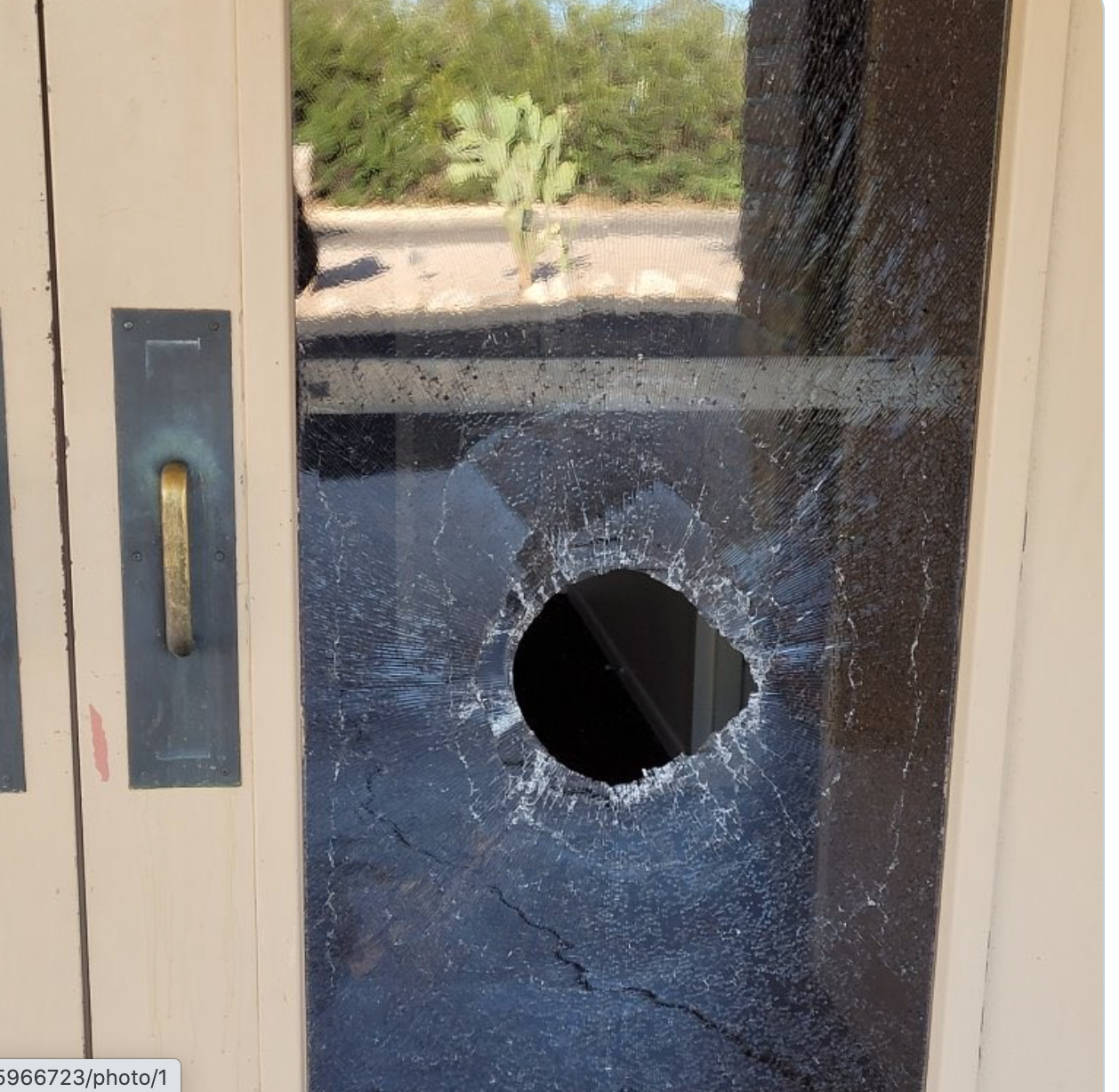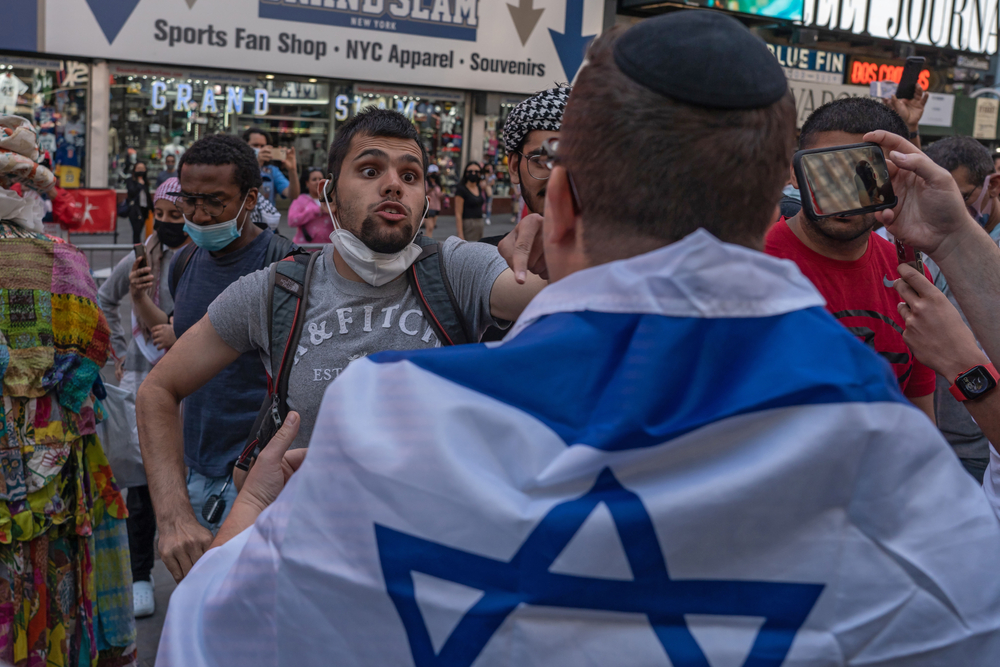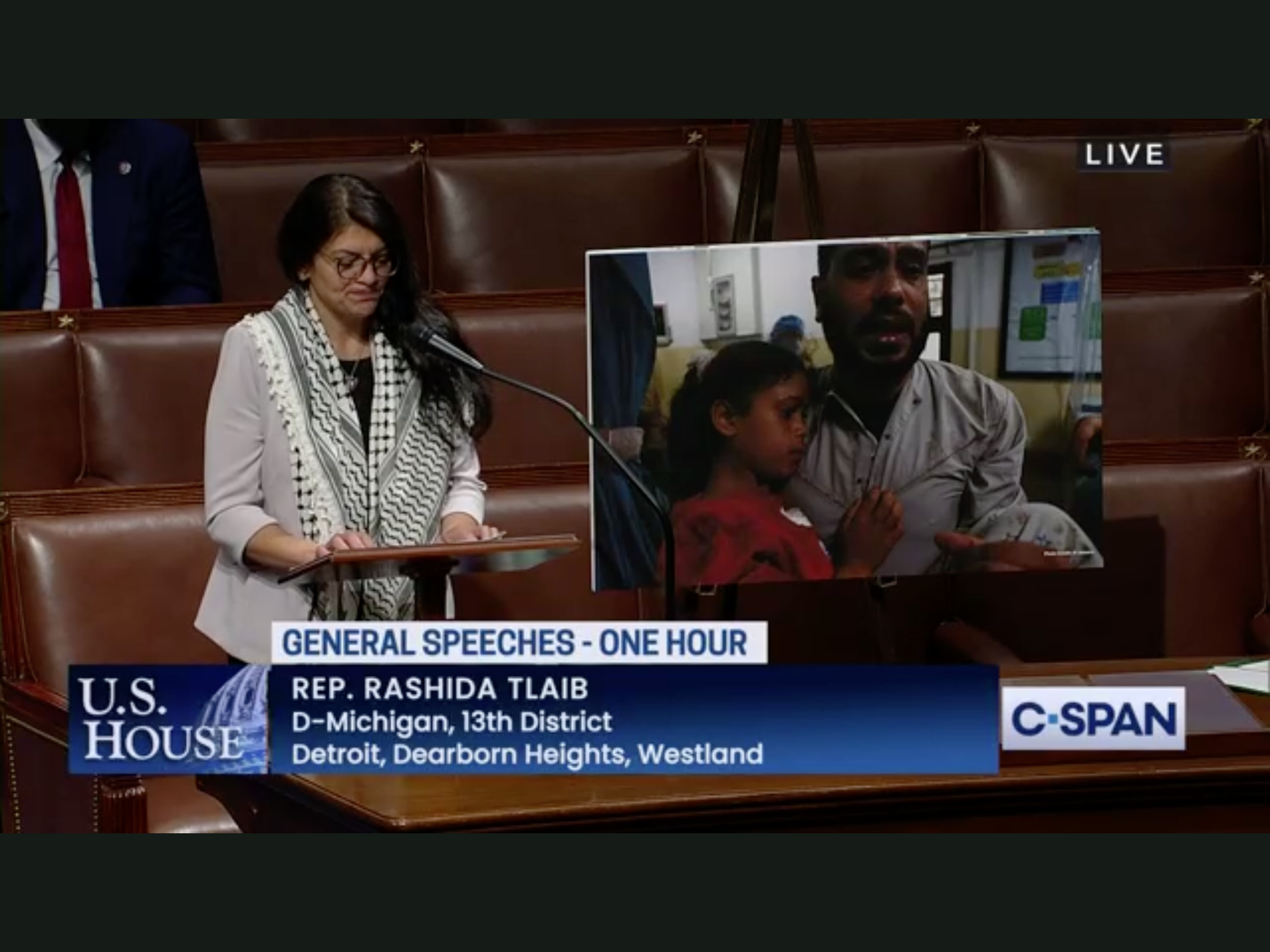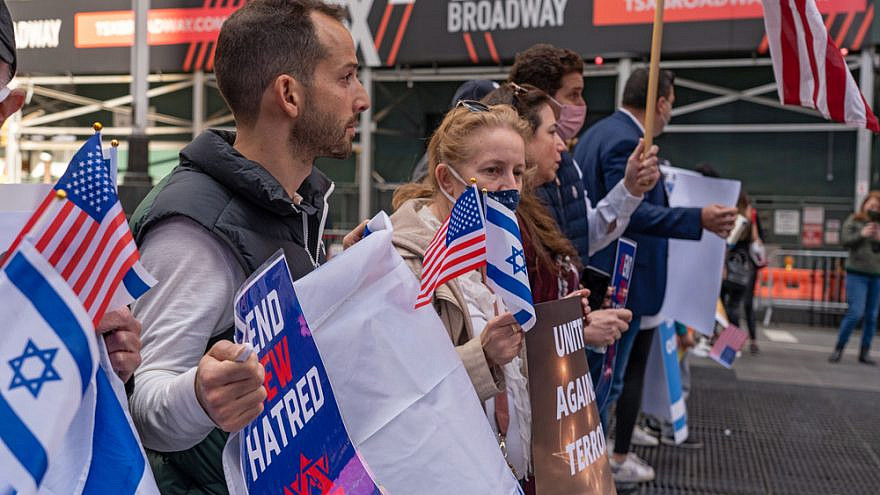Tens of thousands of people logged onto their computers at 4 p.m. Eastern Standard Time on Thursday to make it clear that they will no longer stand by as Jews are assaulted, harassed, threatened, spit on and cursed at in public, while at the same time synagogues, Jewish shops and cemeteries are vandalized and desecrated.
“We have threats coming from every direction and taking many forms,” but what unites them is the fact that the Jewish people, individually or collectively or the Jewish state, are being targeted, said David Harris, CEO of the American Jewish Committee, during the online rally.
Mark Wilf, chair of the board of trustees of the Jewish Federations of North America, said “anti-Semitism is not a historical artifact, it is happening around us all day. [It] echoes the experience of my parents and grandparents during the Holocaust, and must be confronted head-on. … The Jewish community in United States, Israel and around the world are making a statement today that we will not be intimidated, and we will rise to build a better world together.”
The virtual gathering was part of a larger “Day of Action Against Anti-Semitism,” where people were urged to share images on social media decrying anti-Semitism and to contact their elected officials—from their local mayor to their senator—and ask them to take a stand on the wave of Jew-hatred that has swept America and the world. The event was sponsored by the American Jewish Committee, the Anti-Defamation League, Hadassah, Jewish Federations of North America, the Union of Orthodox Jewish Congregations of America and numerous other groups.

It was during the 11-day conflict between Israel and Hamas in the Gaza Strip, and Neiditch, who has lived in Atlanta for 17 years and works with Jewish youth as the regional director of the National Council of Synagogue Youth (NCSY), thought “it was one crazy person.”
Then he started hearing from other people who had experienced the same thing, but the descriptions of the cars were different. “That made me think this isn’t an isolated case, and that it’s becoming something more,” he said.
He’s not wrong.
According to the Anti-Defamation League, since Hamas launched the first of 4,000 rockets at Israel on May 10, anti-Semitic attacks worldwide have been on the rise. During the week starting April 26, the ADL recorded 59 incidents of anti-Semitism across the United States; that number jumped to 113 for the week of May 17-23.
The hate isn’t limited geographically as Jews in large cities and smaller communities have reported recent incidents of harassment, vandalism and assault. Among the incidents:
- A Jewish man was assaulted in Midtown Manhattan by a gang of Palestinian supporters. Two Israelis in their 20s wound up fending off a group of pro-Palestinian attackers.
- Patrons at a restaurant in Los Angeles and others at a kosher restaurant in New York were harassed and then attacked by Palestinian supporters.
- Synagogues in Florida, Illinois, New York, Arizona, Utah and elsewhere were vandalized.
- Jewish day schools and preschools have received threatening phone calls.
In Europe, the numbers are even worse. Great Britain, for instance, reported a 500 percent increase in incidents between May 8 and May 18, when the worst of the fighting in the Middle East was taking place.

And in Canada, B’nai Brith reported that its anti-hate hotline recorded more anti-Semitic incidents in May 20201 than in all of 2020 combined.
On Monday, U.S. President Joe Biden took to Twitter to address the rising anti-Semitism situation tweeting, “The recent attacks on the Jewish community are despicable, and they must stop. I condemn this hateful behavior at home and abroad—it’s up to all of us to give hate no safe harbor.”
‘There is a moment when you cross that line’
Much of what has been seen as fueling the uptick in anti-Jewish hatred globally was the Israel-Gaza conflict. It was met with pro-Israel and pro-Palestinian rallies that often devolved into intimidation and threats aimed at local Jews—threats amplified online via social media, two-minute news soundbites and by celebrities and pop-culture icons who had little to no knowledge of the facts on the ground.
“Under the guise of social justice and the Palestinian movement, people around the world have confirmed what we’ve been documenting for years—hatred against the Jewish people is spreading like fire and now deemed acceptable in many circles, including the radical wing of the Democratic Party,” said Liora Rez, executive director of the StopAntisemitism.org. “Unless those spewing anti-Semitism are dealt with on the same horizontal hierarchy as hatred towards blacks, Asians and other minorities, this will only get worse for Jews.”

Since the start of the Gaza conflict, a groundswell of anti-Israel, anti-Semitic rhetoric has come from the far-left.
“The recent conflict in the Middle East has been used to justify violence against Jews and served as a shield for those spewing anti-Semitic rhetoric online and in the media. But the Jewish community and its supporters are saying ‘enough.’ End JewHatred has helped bring thousands of Jews together to protest on the streets and engage in direct actions to ensure consequences for Jew-hatred,” Brooke Goldstein, Executive Director of The Lawfare Project, told JNS.
Goldstein said that “the left contributed to this hatred by using a conflict in the Middle East to justify discrimination against Jews based on their ethnic, cultural or religious identity, which includes identifying as Zionist. The Jewish community must unite, shed its divisions over partisan politics and reject the appropriation of our identity for political gain. We must organize from the bottom up, train and mobilize for grassroots actions like other minority groups have.”
Much of it is tied to the idea of critical race theory and intersectionality being applied to Israel, labeling it as the “aggressor” and “oppressor,” and the Palestinians as the “bereaved” and “oppressed.”
For instance, in a statement of solidarity with the Palestinians issued by the Black Lives Matter movement, which has had its own ties to anti-Semitic rhetoric, it noted that “We are a movement committed to ending settler colonialism in all forms and will continue to advocate for Palestinian liberation (always have. And always will be).”
Much of this language was amplified by anti-Israel critics in Congress during the conflict—namely, by progressives such Reps. Alexandria Ocasio-Cortez (D-N.Y.), Ilhan Omar (D-Minn.), Rashida Tlaib (D-Mich.) and Rep. Jamaal Bowman (D-N.Y.), in addition to longtime Sens. Bernie Sanders (I-Vt.) and Elizabeth Warren (D-Mass.)., who accused Israel of apartheid and human-rights violations.

Rallies across the United States organized by pro-Palestinian groups, such as Jewish Voice for Peace, Students for Justice in Palestine and Samidoun—groups tied to the anti-Israel BDS movement—similarly accused Israel of carrying out genocide, ethnic cleansing and war crimes against the Palestinians.
Said the ADL’s Rosemberg, “If you think that you are advocating for the rights of the Palestinian people, but your way of manifesting that is to target a Jew or Jewish institution with an attack or harassment, you stop being an advocate and start being an anti-Semite.”
“It is fair game to criticize the State of Israel [and its governmental policies], but there is a moment when you cross that line,” he continued. “Meaning, the moment you start denying the Jewish people the right to a homeland, there are lines being crossed, and when you see folks confusing ‘Jew’ with ‘Israel.’ ”
While the numbers on anti-Semitic incidents rose drastically in the last two weeks or so, the fact is that anti-Semitism was already trending upward, according to Rosemberg, who said, “We were seeing a marked increase at the end of 2020 and the start of 2021 in New York specifically and in other places, and that upward curve continued into 2021.”
Perhaps nowhere has the anti-Jewish tone been more frightening or vicious than on social media where, most recently, the hashtag or phrase “#Hitler was right” resulted in some 17,000 tweets.
“The anti-Semitic intimidation and harassment we have all witnessed come across our social media feeds is quite concerning,” said Evan Bernstein, executive director of CSS, Community Security Service, a volunteer network of Jewish community members providing security to Jewish institutions including synagogues. “… these incidents across the country and across the globe very much warrant a worldview shift on Jewish communal security. The data from ADL, the FBI, etc., has been telling us that security must be prioritized at the highest levels of Jewish communal leadership.”
Noting that Jews need to step up and help safeguard their institutions in part because they know their communities best, he added, “We need more eyes and ears on the ground.”

























